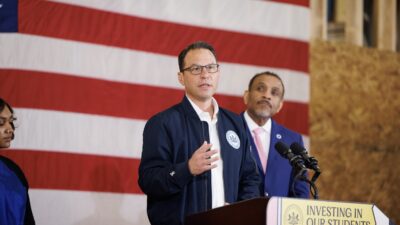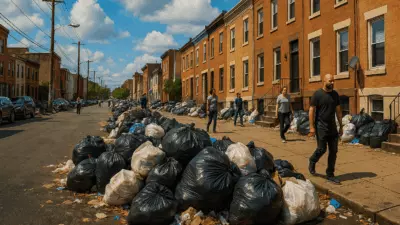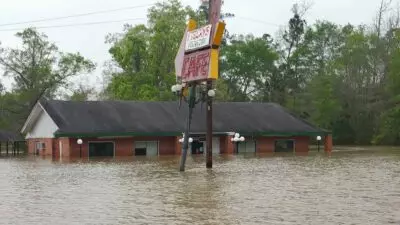Gov. Josh Shapiro said he has “confidence in the leadership” at Penn State following a recent decision made by the university’s board of trustees close seven of its 19 Commonwealth Campuses.

“They know they need to right-size. They know they need to plan for the long term future, and to do that, they needed to make these tough choices,” Shapiro said. “And I have faith in (Penn State President) Neeli Bendapudi and her administration and the board who made those decisions.”
Penn State DuBois, Fayette, Mont Alto, New Kensington, Shenango, Wilkes-Barre and York are slated to close following the spring 2027 semester after a “two-year wind-down period.”
Bendapudi said that enrollment dropped 43% over the past 10 years at the campuses that are slated to close.
However, critics of the decision say they believe the decision was “rushed and lacking community input.”
“I know that when a school like Penn State, a satellite campus leaves a community, that can leave a big hole, and so my administration is committed to working with Penn State and those affected communities to make sure they are taken care of going forward,” Shapiro said.
State Sen. Wayne Langerholc and state Rep. Michael Armanini, both Republicans, represent districts that include Penn State DuBois. They issued a statement critical of the plan to close the campus.
“I am deeply dismayed that all of the advocacy and education of the significant benefit of Penn State DuBois have fallen on deaf ears,” said Langerholc. “For multiple years, this institution embraced the mantra and model of Penn State and produced students who contribute to the local workforce, drive economic activity, and make our region and commonwealth stronger.”
“Today that relationship was broken,” he added. “I am committed to working with my colleagues in the House to identify an entity that appreciates our rural area and will take the broken baton to repair and strengthen our community.”
Armanini described the school as a “hub of manufacturing businesses which include the carbon, and graphite industries.”
“Not only does this decision impact the students of Penn State DuBois, it impacts our communities,” Armani said. “The campus provides jobs to residents of DuBois and the surrounding community, income for local businesses who rely on the student body and faculty, and the local industry which benefits from the research of the school and has a talented pool of students to employ after graduation.”
“HarsH Reality?
GOP Senate Majority Leader Joe Pittman also represents a district that includes one of the satellite campuses, Penn State New Kensington. He offered a different point of view from his GOP colleagues.
“The harsh reality is that higher education in general throughout Pennsylvania is greatly oversubscribed. We have too much physical plant in higher education to support the declining demographics that we are faced with, and there has also been a significant increase in the variety of job opportunities available that don’t necessarily comport with the deliverables of higher education in this state,” Pittman said. “Rightsizing is a necessary step that must happen across higher education. However, the process from a transparency perspective and the lack of messaging on what these campuses can be used for going forward has been far from ideal.”
Pittman said that he does not favor losing the campus in his district, but argued the “big picture view” of the issue was that change is needed in higher education and that conversations will be needed to ensure that “the launch box and digital foundry they have supported continue, and we figure out a path to make the property even more productive than it is now.”
“Ultimately, Penn State will have an obligation to make sure the campuses are all repurposed and brought to a higher and better use in the communities where they reside,” he said. “This is a responsibility the university bears, and their efforts must be supported by the state. We cannot allow closed satellite campuses to become blighted properties. The facilities must be repurposed in a thoughtful way.”
The university’s plan will need approval from the state Department of Education.







